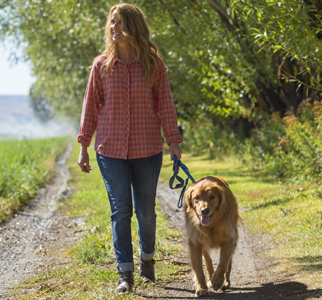May 2019
Simple Steps Toward Living a Healthier, More Active Life
You don’t need a complicated exercise routine—or even a gym membership—to boost your well-being.In 2018, , the U.S. Department of Health and Human Services updated its Physical Activity Guidelines for Americans for the first time in a decade. The new guidelines are simple: Americans should move more and sit less. This applies to everyone from preschool-aged children, kids, and teens, to adults and older adults, women who are pregnant, and adults with chronic health conditions or disabilities.

The current guidelines recommend that adults should aim for at least 150 minutes of moderate-intensity aerobic activity, such as brisk walking, each week and do muscle-strengthening activities at least 2 days per week.
What’s new?
The past guidelines stated that you needed to be active for at least 10 minutes at a time in order to reap any health benefits. But based on new research, the updated guidelines suggest that any length of activity—even walking up a few flights of stairs—counts. When it comes to physical activity, more is better. Even if you don’t exercise much now, moving just a little more throughout your day can improve your health.
Need extra motivation to move more and sit less? According to the new guidelines, many payoffs from increased physical activity occur right away. These include:
After consistently exercising for a few weeks or months, you may find even more benefits, such as:
-
Better heart and lung health
-
Greater muscle strength
-
Fewer symptoms of depression
-
Long-lasting lowering of blood pressure
Another important update to the guidelines is the recommendation that younger kids—those ages 3 to 5—should be more active throughout the day to support their growth and development. This can include a wide variety of activities such as:
-
Playing on a playground
-
Riding a tricycle or bicycle
-
Swimming
-
Walking, running, dancing, skipping, and jumping
-
Playing games such as tag or follow the leader
-
Doing gymnastics or tumbling
Kids who are active during childhood are more likely to be healthy adults.
Get a move on
Adding more activity to your daily life isn’t just about losing weight. Even if your scale doesn’t budge, you still have lots to gain from leading an active lifestyle. In addition to the mental and physical benefits, you’ll also notice that simple daily tasks such as carrying heavy boxes, doing housework, and playing with your kids become easier to do. Consistently seeking out opportunities to stand up and move your body on a daily basis will yield benefits now and throughout your lifetime.